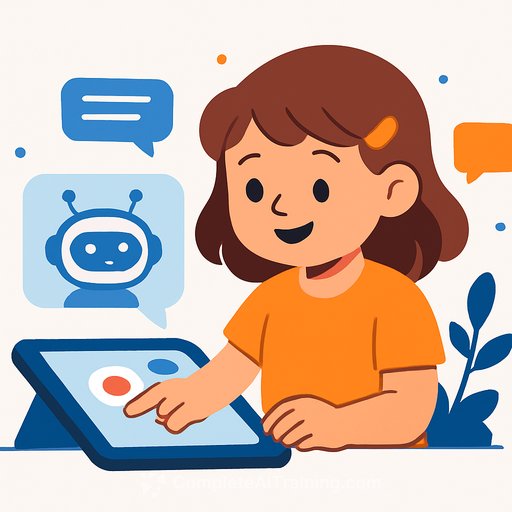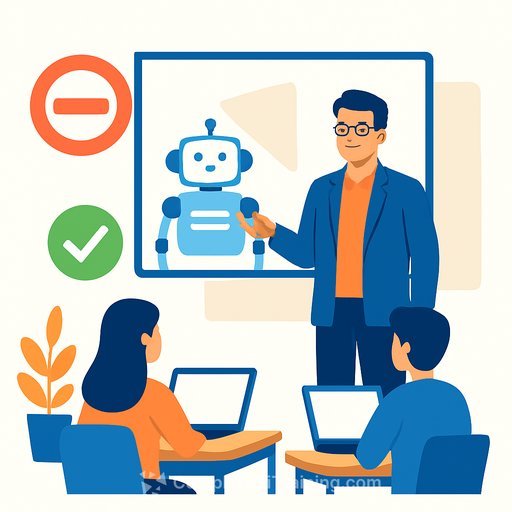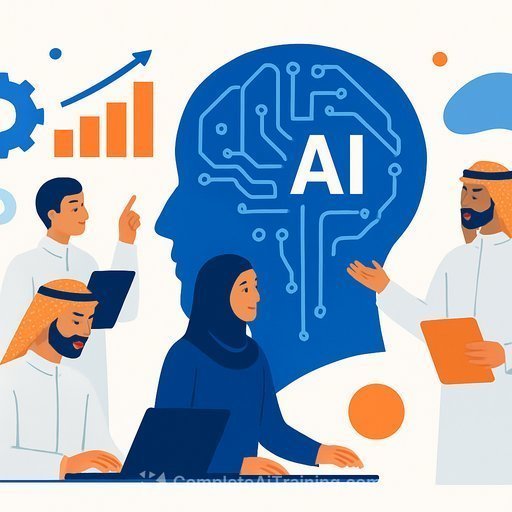How old do you have to be to start using an AI chatbot?
There isn't a single universal rule. Most consumer AI chatbots set a minimum age of 13 in the U.S., often requiring a parent or guardian's permission for younger users under children's privacy laws like COPPA. Check each service's terms before your child signs up. FTC COPPA overview
That said, kids are already trying these tools. A recent Pew Research survey of more than 3,000 U.S. parents shows use starts as early as kindergarten and builds through middle school.
What the data shows
- 5-7 years: 3% of parents said their child used a chatbot.
- 8-10 years: 7% reported use.
- 11-12 years: 15% reported use.
- Voice assistants: About 40% said their 12-or-under children used Alexa or Siri.
Across all respondents with kids 12 and under, chatbot use averaged about 8% (nearly 1 in 10). Screen exposure is far higher in this age range: 90% for TV, 68% for tablets and 61% for smartphones.
Parents feel the strain. About 42% said they could do a better job managing screen time, while 58% said they're doing the best they can.
Why this matters
Parents and educators are weighing the benefits of AI (homework help, idea generation, project planning) against real risks. Some families have raised serious concerns; for example, OpenAI added parental controls to ChatGPT after a lawsuit alleged its chatbot contributed to a teen's death. Several states have also warned AI companies about potential harms to children.
Expert perspective: Talk early, set guardrails
Titania Jordan, chief parent officer at Bark Technologies, urges adults to learn first, then guide: "Parents should learn all they can about AI, chatbots and companions so they can talk to their kids about the potential dangers they pose. Otherwise, kids will learn about them from friends and peers."
She also flags a growing issue: "Kids are forming relationships with AI-generated personalities, which is concerning." Her advice: make it clear that chatbots aren't a substitute for human connection and that their answers aren't always true. "Show them instances where other children have been harmed or misled by AI so they know about the very real dangers that are present."
Practical guidelines for parents and educators
- Confirm the age requirement and enable parental controls where available. Create child or supervised accounts.
- Co-use at the start. Sit with your child, try prompts together and set norms for what's OK to ask and what isn't.
- Teach healthy skepticism. Require kids to verify answers with trusted sources or a teacher before using them.
- Set use-cases. Allow homework brainstorming or outlining; prohibit medical, legal or personal advice.
- Watch for emotional attachment. Remind kids that AI "friends" are not real friends.
- Protect privacy. No names, addresses, school details, photos or identifying info in prompts.
- Time limits and context. Prefer shared spaces (kitchen table) and short, purposeful sessions.
- Review history. Spot-check chats, discuss mistakes and adjust rules as needed.
- Align with school policy. Keep teachers in the loop on allowed tools and acceptable use.
Helpful resources
- FTC: Children's Online Privacy Protection (COPPA)
- American Academy of Pediatrics: Family Media Plan
- Complete AI Training: AI learning paths by job
Bottom line
Many platforms set 13 as the minimum age, yet some kids start earlier under adult supervision. If AI is in your child's life, make it intentional: clear rules, active oversight and ongoing conversations about truth, safety and healthy relationships.
Your membership also unlocks:






